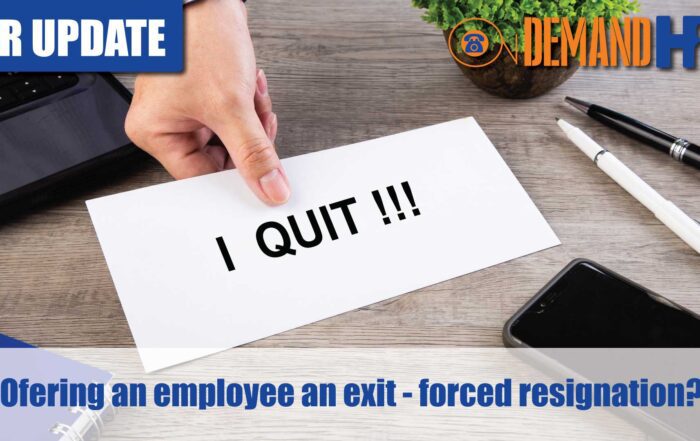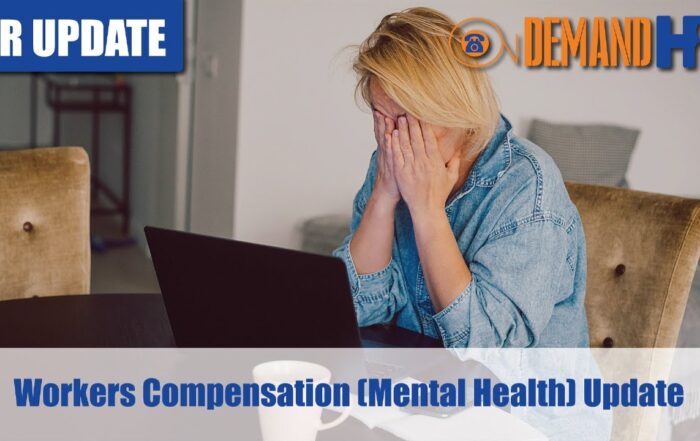Paying above the Award? Do you Still Need A Workplace Relations Review?
We often get asked why they need to undertake a WR Review if they are already paying their staff well and importantly, in their view at least significantly above the award. We sat down with our in house expert Jason Norrie to tackle this common question.
Please see below for a full transcript of this video
Share the HR or workplace relations challenge facing your business and one of our experienced consultants will be in touch within 24 hours with a strategic action plan or discover the best strategy yourself by accessing out free online training library.
Transcript
00:00:02:03 – 00:00:23:25
Andrew Koleda
I think next I want to understand, we often get asked why they need to undertake a workplace relations review if they’re already paying their staff well. And in their view, importantly, they’re paying the staff significantly above the award. What do you say when when clients put this to you?
00:00:24:03 – 00:00:44:00
Jason Norrie
When they say that they’re paying significantly above the award? The first thing it always comes to my mind and always thinking in the background, in my head when I meet new businesses is what award applies? What what award or legislation are they basing their business or their judgments on? And are they up to date with the most common changes within that award?
00:00:45:01 – 00:01:14:25
Jason Norrie
Then again, you could also look at is the figure based off the correct classifications an incorrect classification, such as in the SCHADS award could lead to a huge difference in the minimum wage that an employee’s entitled to. And again, you’ve got awards that have annualised salary requirements. So it’s ensuring that the annualised salary requirements are also kept up to date, not only just saying that they’re above award and they don’t have to apply them.
00:01:16:17 – 00:01:53:16
Andrew Koleda
Yeah, I think that’s a really good point. It’s when it comes to pay rates and making sure that employees are being paid correctly, there’s a lot more involved then I guess the headline rate of pay things like the annualized salary arrangements just things like penalties and allowances. And I think that when it comes to award classification, quite often businesses might have, for example, a occupational award that they believe applies to their employees, but they forget that they might also be covered by an industry based award.
00:01:53:25 – 00:02:02:26
Andrew Koleda
Do you want to tell us of the common some common mistakes, for example, maybe in the IT industry that businesses make this mistake?
00:02:03:28 – 00:02:37:09
Jason Norrie
Yeah. So the awards have a hierarchy of how you should apply them and it’s usually industry over occupational. There are some occupational awards that do trump industry awards. You’ve got to really know these quirks from precedent cases about how they could be fit into either category. A very common saying within the awards is about the environment in which the employee works in that’s most suited to their position of what they do.
00:02:37:27 – 00:03:13:09
Jason Norrie
And that’s where, again, when it comes to specifically IT employees, you’ve got to be in the environment of an I.T. business that is providing IT services for you to apply the Professional Employees Award. You could have an IT professional in a HR business like ours and the award wouldn’t cover them because the business isn’t delivering those IT services. So then you’re looking at award free or miscellaneous there could be Clerks award as well, depending on the level, the nature of the role that the person does.
00:03:14:04 – 00:03:43:18
Jason Norrie
It comes down to personal attributes, such as their qualifications. It’s about whether or not they’re recognized as an IT specialist. To hit a few exemption clauses in miscellaneous award and it’s not only about the business first and foremost, it’s about the whole combined overview picture of the business, the industry, your services, the person’s role, qualifications and experiences they have that help sum up the award coverage for that individual.
00:03:43:29 – 00:03:56:05
Jason Norrie
And it’s a perspective view on putting all of those pieces together and ensuring that you apply them in a plain sort of knowledge that’s easy to understand by others.
00:03:57:18 – 00:04:28:05
Andrew Koleda
I think the award and the example that you just gave is a really good way of highlighting how complex this is and the not only complexity, that complexity leads to how easy it is to make a mistake when it comes to award coverage. I mean, I know the kinds of conversations that we have during our weekly team meetings and and just to share with the audience that sometimes it can get quite heated around awards coverage, trying to find the right solution for the business.
00:04:28:05 – 00:04:51:25
Andrew Koleda
But one thing that always comes to mind is Clint often uses the saying that you don’t get to choose the award. The award chooses you. And that’s where businesses need, I guess, to either for themselves to invest the time to understand the award system and what award might cover some or all of their employees. And I think that’s the other important point.
00:04:52:11 – 00:05:13:26
Andrew Koleda
You know, one award does not necessarily cover the entirety of a business. Different employees within the same business might be covered by different awards. And if they are, they need to invest the time to understand this themselves. Or again, that’s that’s the point around the workplace relations review.






